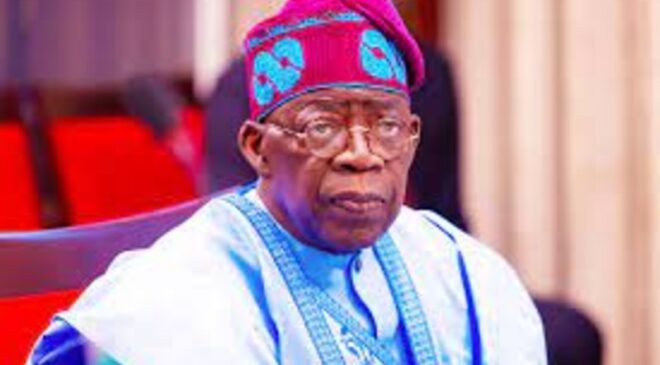In an event during the last Sallah celebration, President Bola Tinubu while addressing issues in the country, stated “Yes, there is poverty; there is suffering in the land. We are not the only people facing such, but we must face our challenges.” Rather than providing solace, this statement exposes a troubling detachment from the realities millions of Nigerians face. It’s essential to scrutinise this comment within the broader context of the government’s actions—or lack thereof—since Tinubu assumed office on May 29, 2023.
President Tinubu’s tenure has been marked by significant economic policies intended to stabilize Nigeria’s economy. However, these policies have often exacerbated the plight of ordinary Nigerians. The removal of fuel subsidies, a major policy shift, was intended to free up government funds for infrastructure and social services but instead has led to a dramatic increase in the cost of living. Fuel prices skyrocketed, leading to increased transportation and food costs, which have disproportionately impacted the poor. 
President Bola Tinubu of Nigeria
Despite these challenges, the government has introduced measures to mitigate hunger and improve living standards. Initiatives such as the Agricultural Transformation Agenda aim to boost food production and ensure food security. Additionally, the Social Investment Programmes, including the Conditional Cash Transfer and the National Home-Grown School Feeding Programme, have sought to provide financial support and nutritional assistance to vulnerable populations. Yet, the effectiveness and reach of these programs remain limited, leaving many Nigerians in dire straits.
Public sentiment towards Tinubu’s administration has been overwhelmingly negative, especially concerning the issue of hunger. A recent survey by the Nigerian Bureau of Statistics (NBS) revealed that over 70% of Nigerians are experiencing food insecurity. Comments from citizens on social media platforms like Twitter and Facebook reflect widespread discontent. A Twitter user, @NigeriaVoice, lamented, “How can we survive when the cost of everything has doubled? This government is killing us with their policies.” Similarly, business owners have voiced their frustrations. A Lagos-based entrepreneur noted, “The cost of importing goods has gone through the roof. It’s impossible to keep prices stable, and our customers are suffering.”
The international community has also taken note of Nigeria’s deteriorating situation. Reports from global organizations like the United Nations and the World Bank highlight the rising levels of poverty and hunger. The World Bank’s 2023 report indicated that Nigeria is home to one of the highest numbers of people living in extreme poverty worldwide. This alarming statistic underscores the severity of the crisis.
Given this backdrop, President Tinubu’s statement appears not only insensitive but potentially dangerous. When leaders dismiss the suffering of their citizens by comparing it to global hardships, it risks inciting anger and unrest. Historical precedents show that such remarks can fuel public discontent. In 2011, the Arab Spring revolutions were partly sparked by governmental indifference to economic hardships, leading to widespread protests and regime changes across the Middle East and North Africa.
Closer to home, Nigeria’s history is replete with instances where perceived government neglect led to uprisings. The End SARS protests in 2020 were initially about police brutality but quickly evolved into broader discontent with the government’s handling of economic issues. If President Tinubu and his officials continue to downplay the suffering of Nigerians, he risks igniting similar movements.
The president’s communication strategy must shift towards empathy and actionable solutions. Acknowledging the problems is a start, but it’s imperative to articulate a clear and effective plan to address them. Statements should reassure the public that the government understands their pain and is committed to alleviating it through tangible actions.
Countries that have navigated economic crises successfully often have leaders who communicate effectively and empathize with their citizens. For instance, during the 2008 financial crisis, U.S. President Barack Obama’s administration focused on direct communication with the public, providing regular updates and outlining specific steps being taken to address the economic fallout. This approach helped to maintain public trust and mitigate widespread panic.
The President’s recent statement during the Sallah celebration highlights a worrying disconnect between the Nigerian government and its citizens. The administration’s policies have had mixed results, with many Nigerians feeling the brunt of economic hardship. Public dissatisfaction is high, and international reports paint a grim picture of the country’s economic situation. Moving forward, the president must adopt a more empathetic and solution-oriented approach to avoid further alienation and potential unrest. Statements minimizing the suffering of Nigerians are not only unhelpful but could lead to serious consequences if not managed properly.
Emmanuel Ochonogor Enebeli, Anipr, CEO, Entrepreneur, Public Relations Consultant and Media Strategist, enebelli@hotmail.com, +234 (806) 331 9057)
